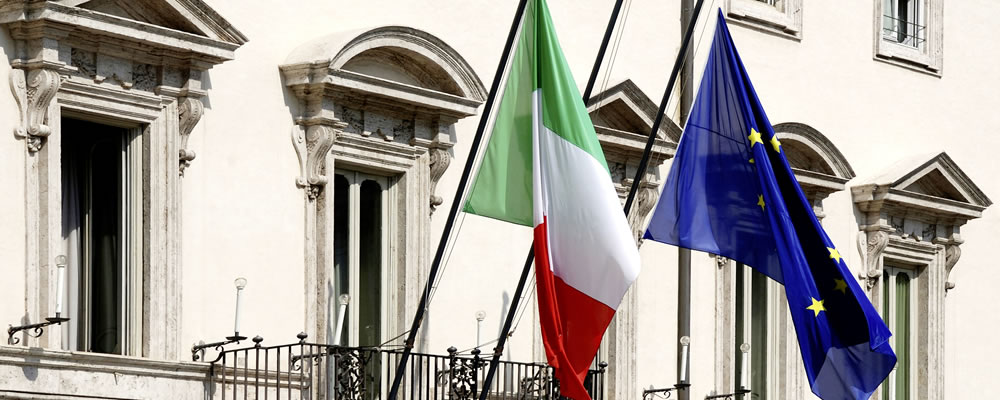Euro to Pound Exchange Rate Easily Gains as UK Inflation Slows
Following weeks of tensions between Italy and the EU, the Euro to Pound Sterling (EUR/GBP) exchange rate advanced today thanks to signs that a deal had finally been made on the issue of Italy’s controversial budget plans.
Since opening this week at the level of 0.8982, EUR/GBP has fluctuated with an upside bias. On Wednesday, Eurozone political developments helped EUR/GBP to put in more solid gains.
At the time of writing, EUR/GBP was trending closer to this week’s best levels of 0.9022 – once again testing above the key level of 0.90.
This is a level that EUR/GBP has only risen above twice before so far this year, meaning the pair is trending closely to its best levels as 2018 draws to a close.
Sterling is broadly unappealing amid uncertainty about how the Brexit process will unfold with mere months left in the process.
However, as Eurozone data continues to disappoint investors, the Euro to Pound exchange rate’s gains are limited and the pair could fall again if upcoming Eurozone stats disappoint as well.
Euro (EUR) Exchange Rates Bolstered as Italy Appears to Reach Budget Agreement with EU
Following weeks of tensions between Italy’s anti-establishment government and the EU regarding Italy’s controversial 2019 budget plans, signs that a deal was in sight made the Euro (EUR) more appealing on Wednesday.
The EU previously rejected Italy’s budget plans, as Italy’s government had planned to run a deficit of 2.4% in order to boost public borrowing and spending. This was seen to be in breach of EU rules.
Financial markets had been rattled by the tensions, due to fears that if the EU began to discipline Italy’s government it could serve to worsen Euroscepticism in Italy.
However, reports emerged on Wednesday suggesting that Italy’s deficit target had been cut to 2.04%, and that the EU had agreed to this.
The reports bolstered Euro demand, but as the deal was not yet formally confirmed some uncertainties persisted. This, coupled with the week’s poor Eurozone data so far, limited the Euro’s gains.
Pound (GBP) Exchange Rate Fails to Find Support in UK Inflation Report
Amid broad uncertainties regarding how exactly the Brexit process will unfold, and the likelihood of major developments delayed into the New Year, investors are hesitant to move much on the highly volatile Pound (GBP).
As markets are more focused than ever on fears of the Brexit’s potential impact on Britain’s economy, news that UK inflation essentially met forecasts in November did little to shift investor sentiment towards the British currency.
UK inflation rose from 0.1% to 0.2% month-on-month as forecast in November, while the yearly figure also met expectations and slipped from 2.4% to 2.3%.
Weaker UK inflation meant that real wages were rising at a stronger rate too, which was likely to be a relief for the Bank of England (BoE).
Expectations that UK inflation could be set to weaken further in December also didn’t give Pound investors much to be bullish about. According to Andrew Wishart from Capital Economics:
‘… probably the precursor of a larger fall in December, perhaps to the 2% target
Based on the past relationship, petrol prices should knock another 0.2 percentage points off the headline inflation next month, leaving inflation within touching distance of the Bank of England’s 2% target,’
Euro to Pound (EUR/GBP) Exchange Rate to be Driven by Central Bank News and Eurozone Data
Over the coming sessions, Central Bank news is likely to influence forex markets – particularly the Federal Reserve’s December policy decision this evening.
If the Federal Reserve indicates that its US interest rate hike cycle is coming to an end, Fed interest rate hike bets will drop and investors will sell the safe haven US Dollar (USD).
As the US Dollar has a negative correlation with the Euro, a more cautious Fed is likely to lead to a stronger Euro and this could help the Euro to Pound (EUR/GBP) exchange rate to strengthen further.
Sterling, on the other hand, could be influenced by Thursday’s Bank of England (BoE) policy decision if the bank has any impact on the market’s Brexit outlook.
However, if the bank merely expresses caution, Sterling is unlikely to see a notable shift in demand. Broad Brexit uncertainties will likely keep a lid on the Pound’s movement potential until there is some kind of notable development.
German and Eurozone confidence data due on Friday could also cause some late-week Euro to Pound (EUR/GBP) exchange rate movement.



